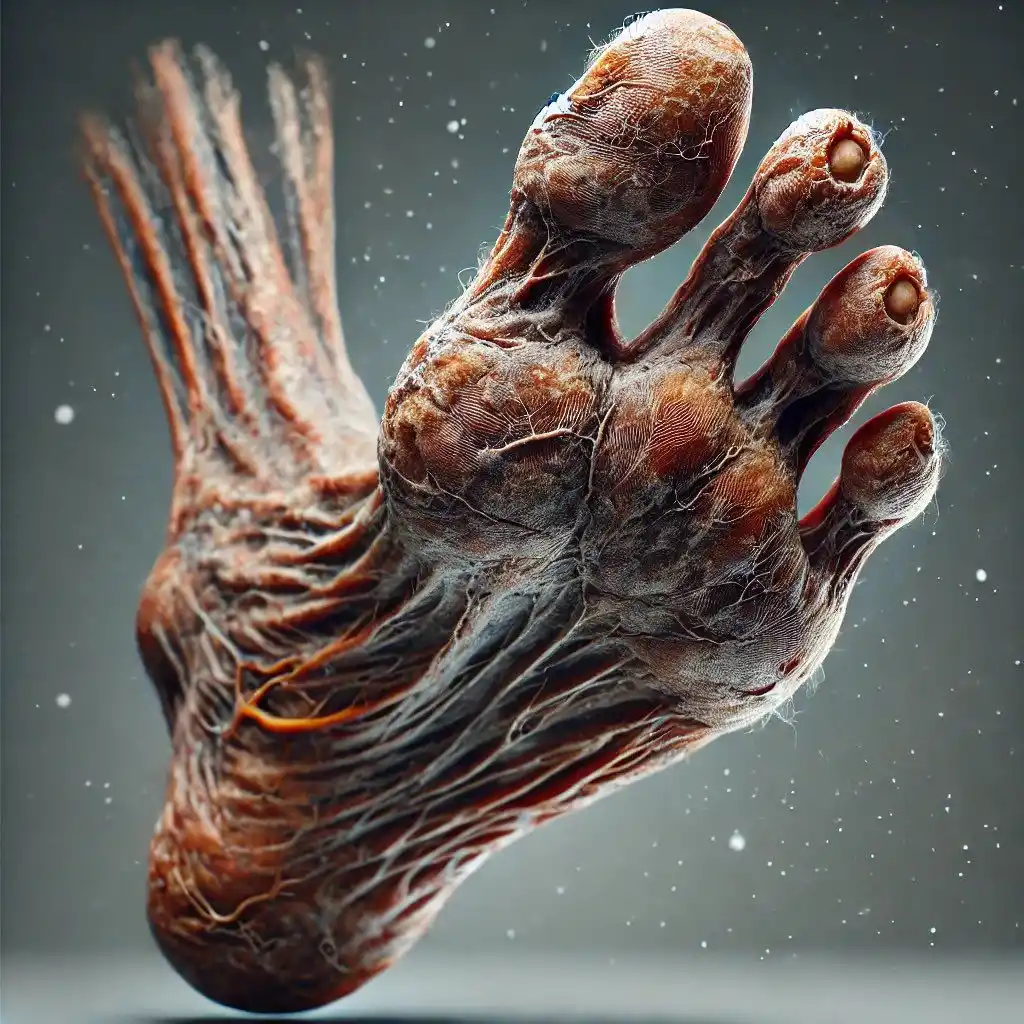
Ndlalane health ®
February 12, 2025 at 07:33 PM
*PERIPHERAL NEUROPATHY: THE SILENT DESTROYER OF NERVES*
During my hospital rotations , I come across countless diabetes case files.
The trend is that many patients have foot ulcers, and for some, amputation is the only option.
*How can this situation be avoided?*
First let’s get some basics
Neuropathy simply means nerve damage.
Peripheral neuropathy is the damage of nerves outside the brain and spinal cord.
It’s divided into;
- Sensory neuropathy
- Autonomic neuropathy
- Motor neuropathy
Sensory neuropathy affects the nerves of the feet and hands.
Autonomic neuropathy affects the organs and glands, and
Motor neuropathy affects the nerves that control movement.
Nerve damage is a slow process, most people only get diagnosed on presentation. It can cause severe pain and drastically reduce quality of life.
*WHAT CAUSES PERIPHERAL NEUROPATHY?*
While diabetes is the most common cause, several other factors can lead to nerve damage:
- Vitamin deficiencies like B1, B6 and B12
- Alcoholism
- Infections like HIV, shingles and Lyme disease
- Autoimmune diseases like lupus, rheumatoid arthritis
- Medications like chemotherapy and some antibiotics
- Injury or nerve compression.
However, peripheral neuropathy due to diabetes (Diabetic peripheral neuropathy), is the most common type.
*WHY IS DIABETIC PERIPHERAL NEUROPATHY SO DANGEROUS?*
Imagine stepping on a sharp object but not feeling it. Thats what happens when neuropathy sets in. Over time, numbness plus poor circulation = foot ulcers that don’t heal.
Without proper treatment, these ulcers become infected, leading to gangrene (dead tissue).
At this stage, amputation becomes the only option.
*WHAT ARE THE SIGNS AND SYMPTOMS OF PERIPHERAL NEUROPATHY?*
- Sensory symptoms include:
• Numbness or loss of feeling in the hands and feet
• Burning, tingling or electric shock like pain
• Extreme sensitivity to touch (Even bedsheets can hurt)
- Motor symptoms include:
• Muscle weakness (difficulty walking and frequent falls)
• Loss of coordination and balance
- Autonomic symptoms include:
• Dizziness due to changes in blood pressure
• Excessive sweating or inability to sweat
• Bladder or digestive problems (constipation and diarrhea)
If you have diabetes + any of these symptoms, please do not ignore them!
*CAN PERIPHERAL NEUROPATHY BE REVERSED?*
I don’t want to give a yes or not answer but the long version answer is it can be managed or improved, depending on the underlying cause and when we caught it.
For example
1. Diabetic Neuropathy: If caused by diabetes, tight blood sugar control can help improve symptoms and slow progression.
2. Nutritional Deficiencies: Conditions related to vitamin deficiencies (like B12) can often be reversed with supplementation.
3. Toxins and Alcohol: Reducing or eliminating exposure to toxins or alcohol can lead to improvement.
4. Autoimmune Diseases: Treatment of the underlying autoimmune condition may alleviate symptoms.
5. Infections: Treating the infection can sometimes resolve neuropathy.
6. Genetic Factors: In cases of inherited neuropathies, management focuses on symptom relief rather than reversal.
7. Chronic Conditions: For neuropathies related to chronic conditions, management strategies may include medications, physical therapy, and lifestyle changes but may not lead to full reversal.

❤️
🙏
2